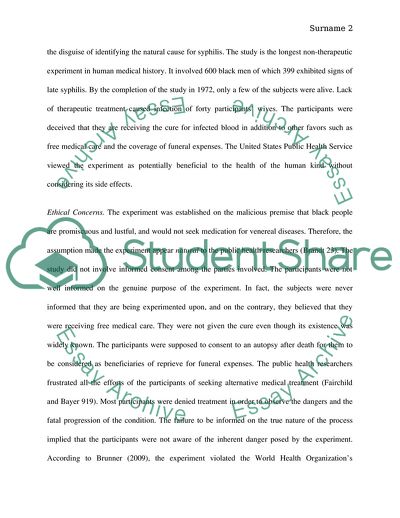Cite this document
(The 40 year history of Tuskegee and what are the ethics that were Term Paper - 1, n.d.)
The 40 year history of Tuskegee and what are the ethics that were Term Paper - 1. https://studentshare.org/medical-science/1782110-ethical-concerns-and-the-tuskegee-syphilis-experiment
The 40 year history of Tuskegee and what are the ethics that were Term Paper - 1. https://studentshare.org/medical-science/1782110-ethical-concerns-and-the-tuskegee-syphilis-experiment
(The 40 Year History of Tuskegee and What Are the Ethics That Were Term Paper - 1)
The 40 Year History of Tuskegee and What Are the Ethics That Were Term Paper - 1. https://studentshare.org/medical-science/1782110-ethical-concerns-and-the-tuskegee-syphilis-experiment.
The 40 Year History of Tuskegee and What Are the Ethics That Were Term Paper - 1. https://studentshare.org/medical-science/1782110-ethical-concerns-and-the-tuskegee-syphilis-experiment.
“The 40 Year History of Tuskegee and What Are the Ethics That Were Term Paper - 1”. https://studentshare.org/medical-science/1782110-ethical-concerns-and-the-tuskegee-syphilis-experiment.


